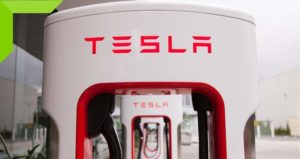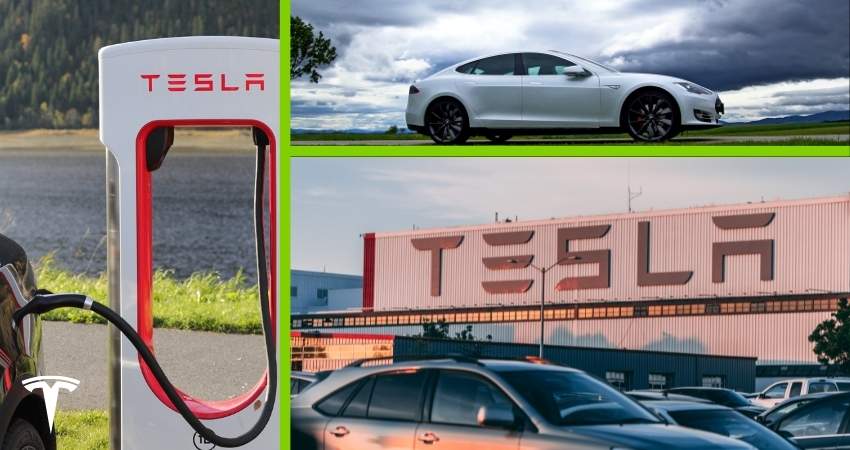Until quite recently, electric cars were a far-fetched idea. The market had severe reservations about letting go of their traditional, high-performance combustion engine vehicles. It was considered a model too good to be true.
You would be amazed to know that General Motors introduced the first electric car in 1986, called EV1. Unfortunately, the saga of EV1 was short-lived, as the production line was officially discontinued at the mock funeral of EV1 in 2003 due to a lack of market demand.
Ironically during the same year, Tesla came up with the mission to break the stigma of performance-compromised electric vehicles.
You must be asking, why were Tesla founders so passionate about electric cars? How were they able to gain market trust? Why does Tesla make only electric cars?
Well! hold your horses, sit back and relax. The article below answers all the questions.
So, Why Does Tesla Make Only Electric Cars?
To understand why Tesla. Inc. makes only electric cars; we need to understand the motive behind Tesla’s creation. The company’s mission statement is to accelerate the world’s transition to sustainable energy.
Combustion engine vehicles are one of the leading contributors to Global Warming. Combustion engines produce more than 10% of the world’s greenhouse gasses.
The founders of Tesla motors and Elon Musk wanted to align the attention of the public toward sustainable sources of energy production. They had realized that sooner or later, the world’s fossil fuel reserves would die out, and people would have to switch to other forms of energy.
Moreover, Tesla motors wanted to prove to the world that battery-powered engines can be more powerful and efficient than used merely in a golf cart. The unveiling of the Roadster, the first electric sports car, shattered any chances of doubt regarding the efficiency of an electric vehicle.
A top speed of 200 km/h and a range of 394 km per charge was a groundbreaking achievement that astonished everyone.
Now the idea of electric vehicles doesn’t sound too far-fetched. Does it?
5 Reasons Why Tesla Makes Only Electric Cars
1. Deteriorating World Environment
Global warming is no longer a paperback debate. It is one of the most grievous issues facing humanity; a deteriorating world environment, decreasing quality of air index, smog, and rising sea levels are all alarming signs for us and our future generations.
Our daily use of combustion engine cars and trucks accounts for more than one-fifth of America’s carbon emissions. Releasing around gallons of carbon dioxide and other harmful gasses results in an accelerated effect on global warming.

Tesla aims to achieve zero emission levels through electric vehicles and other sustainable forms of energy. When you switch from an Internal Combustion Engine (ICE) to a Battery Electric Vehicle (BEV), you instantaneously remove all dangerous exhaust pollutants, including nitrogen oxides (NOx) and carbon monoxide (CO), and hydrocarbons (HC). Because these pollutants are only emitted from automobiles via the engine, there are no emissions if there is no engine.
2. Depleting Fossil Fuel and Oil Reserves
Reserves of fossil fuels and oil are dwindling at an alarming rate. If we continue to burn fossil fuels at our current rate, it is anticipated that the reserves will deplete by 2060. And When the fossil fuels and oil reserves run out, what then?

Not only are we persistently robbing this planet of its natural reserves, but we are also tormenting it. As discussed earlier, the combustion of fossil fuels results in air pollution and, subsequently, global warming.
The global trade and network rely heavily on oil. Running out of oil will have its toll on the worldwide market. It will have catastrophic effects on international trade.
Tesla firmly believes that the faster the world stops relying on fossil fuels and strives towards a zero-emission future, the better.
3. More Efficient and Sustainable Mode of Transportation
As substantiated by research, electric vehicles are more cordial for the environment. They run directly on electricity, thus emitting little or no greenhouse gasses. Plus, the electricity used can be obtained from renewable sources, for example, wind and solar energy.
An EV uses electricity for direct functioning, making it more efficient than a conventional vehicle which converts the fuel into heat and the heat into motion. There is no getting in line at the gas station, and you can charge it at the ease of your home.
Compared to its alternative, EVs are more efficient, convenient, and easier to maintain simultaneously, providing better performance. EVs are more sustainable and are here to stay.
They might be the end of conventionally powered vehicles, as one can say.
A win-win situation, right?
4. Electric Vehicles Are the Future
The future is now! A little while ago, electric cars were nothing but a mere fantasy. And now, it has usurped the automotive sector due to innovation. That was deemed impossible then is now up for grabs for the general public.
In the US only, electric vehicle sales have skyrocketed to more than 40% a year since 2016. Given the trend, by 2035, the largest automotive market will be electric. It is only a matter of time before conventional fuel-powered vehicles become obsolete.
EVs cater to multiple problems that have caused great concern for the human race for decades. They curb the use of fossil fuels, mitigating environmental pollution and degradation.
5. Cheaper, More Sustainable Cars for Everyone
It is shocking to comprehend that EVs are cheaper. Now, the question arises, how can such a novelty be more economical than its alternative? Here is how.
It might not be apparent, but in the long run, EVs tend to be more economical. It saves you from the long-term fuel costs and cuts down the maintenance cost due to its efficient electric motor.
In 2018, a study by the University of Michigan’s Transportation Research Institute stated that the average annual fuel expense of an EV was $485, compared to $1,117 for a gas-powered vehicle.

The initial cost of the EV itself might be a little higher but ask any businessman that the long run is what counts.
Who doesn’t want to save money, right?
What Has Tesla Achieved So Far?
What was the question behind the birth of Tesla? Tesla was founded in 2003 by a group of engineers who wanted to prove a point that you don’t have to compromise to drive an electric car. And to show that EVs can be better, quicker, and more sustainable.
In 2008 Tesla launched its sports car, “The Roadster.” It achieved 245 miles on a single spark which was unprecedented.
Tesla has achieved miracles! It brought mere fantasies to real life. And it continues to stride toward a more contemporary and resourceful world. But Elon Musk has not kept the company confined to automotive. Even though the company generates a significant portion of its revenue from its EV sales, it also sells energy generation products.
Powerwall, for example, is a power cell with enough juice to run a whole house. Tesla also makes and sells solar energy generation systems for residential, commercial, and industrial purposes.
From launching just Electric powered vehicles to designing autonomous cars, Elon and Tesla have broken through seemingly impossible barriers.
There is no going back now. Electric Vehicles are the future, and the future is now! The world is progressing in technical aspects.


